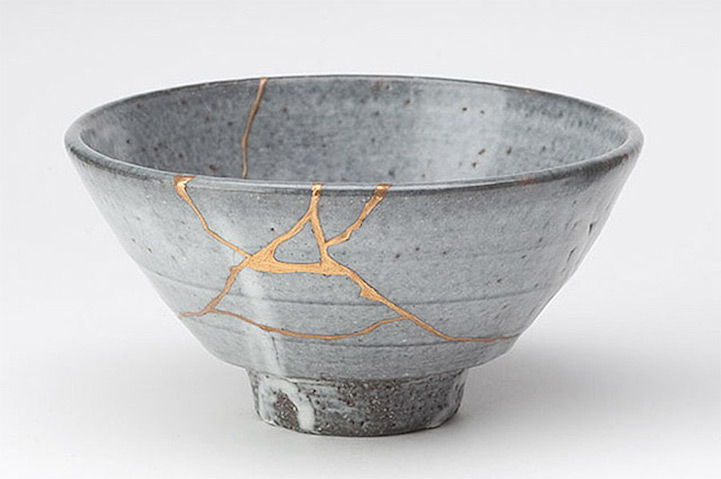Have you ever complimented someone’s brokenness? I did… on Mother’s Day, and I meant it. After Sunday’s service, I approached my pastor’s wife, who had just given the message and told her, “I like your shard!!” (In her message, she used a broken piece of glass to illustrate her life.) I know, its kind of an odd thing to say to someone, but maybe we should say it to one another more often. I was pretty sure she would understand the sentiment, but I also added, “It is beautiful and captivating, and I’m so proud you are my pastor’s wife!”
While she was speaking, she would lift up both a beautiful handheld mirror, representing the hopes and expectations we have for life, and a shard, representing our realities, which are often broken. At the end of her sermon, she lamented that many people look at their broken shard and long to discard it, for another marriage, another chance or even sometimes permanently, through suicide. God, though, is longing to undertake His creative, healing work in our lives so that He can reflect His own glory off that shard to those around us.
This Mother’s Day I pondered her words all day: as I ate a burger, as I took a beautiful walk with my family in the Red Rock Canyon, as I laid my head down on my pillow. I have a shard too. It is a result of the brokenness of my life, and yes, sometimes those edges are pretty sharp and jagged. At times, I have thought about trading in my shard for the hope of something better. But, its mine. And, I am learning that shard is what makes me unique and beautiful. Its what gives me my “muchness.”
Did you know the “greatest” command in the Scriptures tells us to love God with “our muchness”? The New Testament’s translation of a verse in Deuteronomy reads, “You shall love the Lord your God with all your heart and with all your soul and with all your mind and with all your strength.” (1) We find loving God with “our muchness” hidden in the last part: “with all your mind and with all your strength.” The Gospel writers were faced with the impossible task of translating that last untranslatable Hebrew phrase from the book of Deuteronomy into the Greek language. (2) They split the Hebrew phrase into two possible translations: mind and strength, and its a pretty good attempt. But, really it should read something like this: “love the Lord your God… with all your muchness!”
Your muchness is what makes you you. Your personality, your sense of humor, your gifts, your talents, your frailties, your ticks, all the good and bad stuff that has made you think the way you do. The way you handle life’s situations. The way you love and fight. The way you sleep and eat. The choices you make. The brokenness. The mending. All of it.
My young friend, Morgan, introduced me to a form of Japanese art in a speech I heard her give during a competition. It is called “kintsugi or kintsukuroi.”(3) It is defined as “to repair with gold.” The Japanese repair broken pottery with lacquer dusted or mixed with powdered gold, silver or platinum. The repair method was born from the Japanese feeling of “mottainai,” which expresses regret when something is wasted. And get this, the philosophy behind it is that they treat breakage and repair as part of the history of an object, rather than something to disguise.
We women are good at disguising. We buy pretty clothes. We wear makeup. We post the nice things on Facebook. Nothing wrong with any of that, as long as we aren’t using it to disguise. I’m done with disguising my shard. And, I’m done with helping you disguise yours. I will be a woman who clutches her shard because it is the muchness God has given me. I will be a woman who celebrates your shard because it is the gift you have been given.
My pastor’s wife, Tosha, said our shards are meant to reflect God’s glory. That means we are created to display God’s own beauty. We are to accurately reveal God’s person. Reflect His being. He is the healer. He is the listener. He is the provider. He is the fixer. The shelter in the time of my trouble. And, I don’t know why, but God has designed it that the world would know all those things about Him because of my pitiful shard. The root word for glory is associated with the word “heavy.” To treat something lightly would be the opposite of glorifying it. To throw away my shard would be treating it lightly. To let God get His glory would be treating my shard with heaviness.
So, thank you, Tosha, thank you mom, thank you mother-in-law, thank you grandmothers and girlfriends and sisters in the faith for keeping your shards and not tossing them away for the hope of something better. Thank you for sticking with the difficulties and pain of life. Thank you for loving God with your muchness. Thank you for reflecting God’s glory. It gives me the inspiration to do the same. And, did I mention? ….I like your shard!
Have you ever complimented someone’s brokenness? I did… on Mother’s Day, and I meant it. After Sunday’s service, I approached my pastor’s wife, who had just given the message and told her, “I like your shard!!” (In her message, she used a broken piece of glass to illustrate her life.) I know, its kind of an odd thing to say to someone, but maybe we should say it to one another more often. I was pretty sure she would understand the sentiment, but I also added, “It is beautiful and captivating, and I’m so proud you are my pastor’s wife!”
Questions for Reflection:
• In what areas have you been tempted to trade in your shard?
• What conversation could you begin with God today regarding your brokenness and mending?
• Is there a woman who you could thank today for keeping her shard?
Footnotes:
1. See Mark 12:30, Luke 10:27 and Matthew 22:37 and Deuteronomy 6:5.
2. The untranslatable Hebrew phrase is “uvechol me’odecha” In Deuteronomy 6:5.
3. For more information about the Japanese art of “kintsugi,” visit: https://en.wikipedia.org/wiki/Kintsugi
Feature image used under “Fair Use” for copyrighted works. (image source: http://www.mymodernmet.com/profiles/blogs/kintsugi-kintsukuroi)
Content copyright © 2016 Fluidchurch.net. All Rights Reserved.


Recent Comments